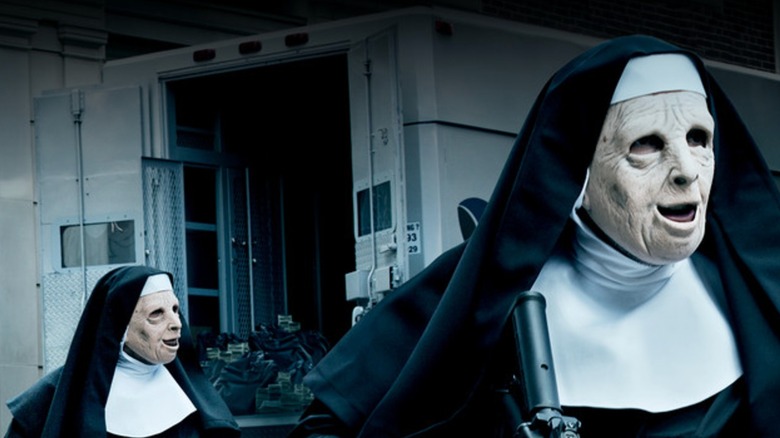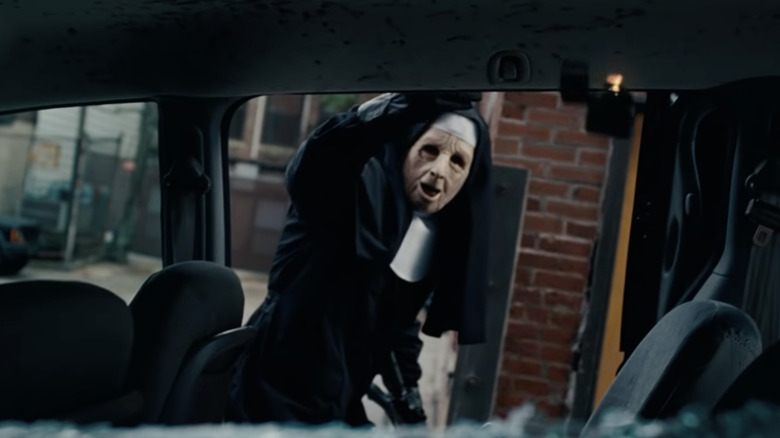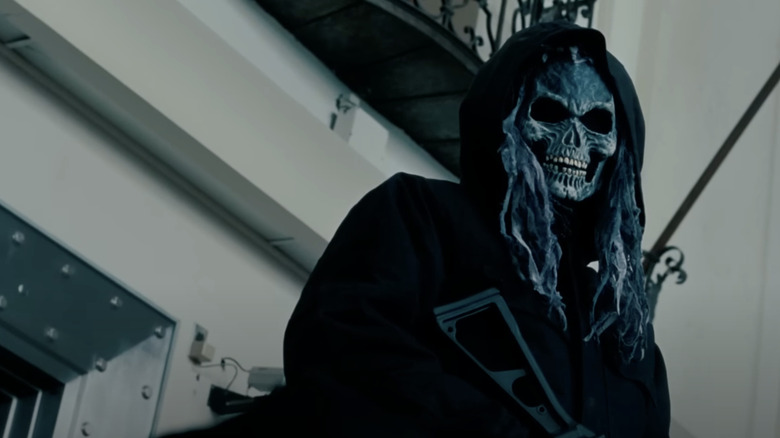
Ben Affleck’s career as a filmmaker and actor has become a series of rises and falls. One of his peaks was from 2007 to 2012, when he pivoted to directing, won people back, and capped it off with a Best Picture win for “Argo.” (This preceded the fall in 2016, when Affleck’s run as Batman got off on the wrong foot and his next film, “Live By Night,” disappointed.)
Affleck’s second film is 2010’s “The Town,” where he plays bank robber Doug MacRay, who falls for bank teller Claire Keesey (Rebecca Hall) after his crew takes her hostage during a heist. And you thought your parents had a wild “how we first met” story! The town in the title is Charlestown, a Boston neighborhood that once had a reputation for a high amount of robberies. Supporting characters include Doug’s unhinged right hand James “Jem” Coughlin (Jeremy Renner), Jem’s needy sister Krista (Blake Lively), and FBI Agent Adam Frawley (Jon Hamm) who thinks he’s the yuppie Melvin Purvis.
“The Town” is based on the 2004 novel “Prince of Thieves” by Chuck Hogan. It’s a slickly written thriller that more than earns comparison to Dennis Lehane outside of just the Boston setting. Both the book and movie feature three robbery sequences: the first one is at the bank Claire works at, and the third is a heist at Fenway Park. The second one, though, is totally different in the book and film.
In the movie, Doug and Co. rob an armored car disguised as nuns — wrinkled plastic face masks and all. Nuns holding assault rifles is definitely an eye-catching image, so that’s why this robbery was the most heavily advertised of the film’s set pieces; the posters and trailer both highlight Doug and Jem in their holy habits. But neither those costumes nor that robbery are in “Prince of Thieves.” There, the second heist is knocking off a movie theater. Yes, a movie theater. It may sound petty for a crew that takes down banks, but it’s all a matter of time and place.
The Town’s nun robbery is not in the original book
“The Town” has a contemporary setting, but “Prince of Thieves” is a period piece set in 1996. Throughout the novel, Doug, Jem, etc. are stressed as the last generation of native sons in Charlestown who will be criminals. White-collar professionals (like Claire and Frawley) have moved in and the town is struggling to maintain its Irish immigrant, working-class identity. The 1996 setting means that themes of surging gentrification make more sense; by 2010, that battle in Boston was already lost.
Affleck explained in a 2020 interview with The Ringer: “I [set] that movie in the 2000s, but it was really about the ’80s and ’90s in Charlestown. I sort of pretended that Charlestown was still the way it used to be. But it really wasn’t. It was taking a period of time that had passed and pretending it was still a reality.”
The book taking place in the 1990s also explains why criminals would think a movie theater is a gold pot. Doug and Co. time their heist around the onset of the summer movie season (with plenty of in-text references to real ’96 blockbusters like “Mission: Impossible” and “Twister”). Nowadays, though, when theater attendance is in decline and even safe bets can turn into misfires, the idea of sticking up a movie theater, because they have so much money, shows the story’s age.
Is that why this scene got cut in the movie? Anthony Vieira at the Film Stage has a different hypothesis: you don’t want your audience sitting down in a movie theater to think the place is about to get robbed.
How The Town changes the original Prince of Thieves book
The armored car robbery is a better fit for the movie’s structure, too, since it leads into a car chase through the narrow roads of Boston’s North End. The movie needs some action like that in the middle to avoid a rut, and it climaxes with a unique comedy beat: Doug and his crew, still in nun masks, climb out of their getaway car and see a cop staring at them from the other side of the road. They silently stare at each other for a moment, but then the cop (not in the mood to get in a shoot-out with four M-16s) literally looks the other way.
This change leaves the structure of “Prince of Thieves” mostly intact throughout “The Town,” but it’s not the only change the film makes. In the book, the crew wears stylized hockey masks during their first heist. In another stroke of inspiration by costume designer Susan Matheson, the movie swaps that out for blue-black skull masks with long hair. (See above.) The dreadlock skull masks are way scarier and hockey masks would be laying the “Heat” of the robbery on too thick.
The biggest change “The Town” makes, which does impact the story, is letting Doug get away. (Except in the alternate ending from the extended cut, anyway.) In the book, he’s shot and limps back to Claire’s house, dying in her arms. He realizes in his last moments that they never had a future together, and he had bet all his hopes on her the same way Krista had on him. The last chapter in “Prince of Thieves” is a prequel circling back to just before the robbery begins, showing how Doug’s fate was locked in by his own choices — movie theater or armored car, he was still a criminal.




Leave a Reply